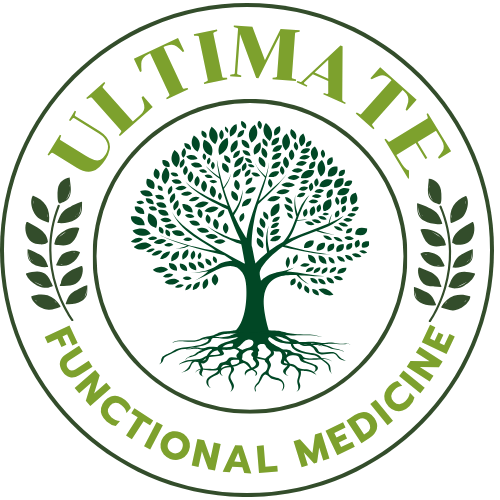Spinal stenosis, a condition characterized by the narrowing of the spaces within the spine, can lead to a range of uncomfortable and sometimes debilitating symptoms. While conventional treatments like pain medication and surgery are often recommended, many individuals seek alternative approaches that offer relief without invasive procedures. Chiropractic care has emerged as a potential option for managing spinal stenosis symptoms. By focusing on spinal alignment, muscle balance, and nerve function, chiropractic care aims to provide a non-invasive and holistic solution to alleviate discomfort and enhance overall well-being. In this article, we delve into how chiropractic care can play a vital role in easing the symptoms of spinal stenosis and improving the quality of life for those affected by this condition.
Understanding Spinal Stenosis
Spinal stenosis occurs when the spaces within the spine narrow, potentially leading to compression of the spinal cord or nerve roots. This can cause a range of symptoms, including pain, numbness, tingling, and muscle weakness. The condition is often associated with aging, as wear and tear on the spine over time can contribute to the narrowing of the spinal canal and intervertebral foramina.
The Chiropractic Approach
Chiropractic care is founded on the principle that a properly aligned spine supports optimal health and well-being. Chiropractors focus on identifying and addressing misalignments, or subluxations, in the spine. By using gentle adjustments and techniques, chiropractic care aims to restore proper spinal alignment, promote nerve function, and enhance the body’s natural ability to heal itself.
Chiropractic Care for Spinal Stenosis Symptoms
Chiropractic care offers a holistic and non-invasive approach to managing the symptoms of spinal stenosis:
-
Spinal Alignment: Chiropractic adjustments aim to realign the spine, reducing pressure on the spinal cord and nerve roots. By optimizing spinal alignment, chiropractic care can alleviate pain and discomfort associated with spinal stenosis.
-
Nerve Function: Proper spinal alignment enhances nerve communication and function. Chiropractic care can help address nerve impingements caused by spinal stenosis, reducing symptoms like numbness and tingling.
-
Muscle Balance: Spinal stenosis can lead to muscle imbalances and tension. Chiropractors use soft tissue manipulation and therapeutic exercises to restore muscle balance, relieving strain on the spine.
-
Inflammation Reduction: Chiropractic adjustments can promote better circulation and drainage of inflammatory substances, which may help reduce inflammation around affected spinal structures.
Scientific Evidence and Patient Testimonials
While research on the effectiveness of chiropractic care for spinal stenosis is ongoing, some studies suggest its potential benefits. A study published in the Journal of Manipulative and Physiological Therapeutics (2016) reported that patients with lumbar spinal stenosis who received chiropractic care experienced significant improvements in pain and disability compared to those who did not receive chiropractic treatment. Additionally, patient testimonials highlight the positive impact of chiropractic care on spinal stenosis symptoms and overall quality of life.
Chiropractic Techniques for Spinal Stenosis
Chiropractors use specific techniques to address spinal stenosis symptoms:
-
Manual Adjustments: Chiropractors perform gentle adjustments to realign the spine, taking care to avoid exacerbating any existing issues.
-
Flexion-Distraction Technique: This technique involves using a specialized table that gently stretches the spine, creating space between the vertebrae and potentially relieving pressure on compressed nerves.
-
Soft Tissue Manipulation: Chiropractors use massage and soft tissue techniques to reduce muscle tension and improve overall comfort.
Safety and Considerations
Chiropractic care for spinal stenosis is generally considered safe when performed by a licensed and experienced chiropractor. However, there are some important considerations:
-
Consultation: Before seeking chiropractic care, consult with a healthcare provider to ensure that chiropractic adjustments are appropriate for your specific condition.
-
Qualified Practitioner: Choose a chiropractor who has experience in treating spinal stenosis and is knowledgeable about the condition’s nuances.
-
Individualized Care: Chiropractors tailor their treatment plans to each individual’s needs and condition, ensuring that adjustments are gentle and effective.
-
Collaboration: Chiropractic care can complement other treatments or therapies recommended by your healthcare provider. Collaboration between healthcare professionals ensures a well-rounded approach to managing spinal stenosis symptoms.
Complementary Approaches
Chiropractic care can be enhanced by adopting other holistic approaches to support spinal stenosis management:
-
Physical Therapy: Engaging in exercises and stretches recommended by a physical therapist can help improve muscle strength, flexibility, and overall spinal health.
-
Lifestyle Modifications: Maintaining a healthy weight, adopting proper posture, and practicing ergonomic techniques can contribute to alleviating spinal stenosis symptoms.
-
Mind-Body Techniques: Techniques like meditation, deep breathing, and relaxation exercises can help manage pain and reduce stress associated with spinal stenosis.
Conclusion
Spinal stenosis can cause a range of uncomfortable symptoms that impact an individual’s daily life. While conventional treatments are available, some individuals seek alternative approaches that offer relief without resorting to surgery or medication. Chiropractic care provides a non-invasive and holistic option for managing spinal stenosis symptoms by addressing spinal misalignments, nerve function, and muscle balance. While research on chiropractic care for spinal stenosis continues to evolve, anecdotal evidence and emerging studies suggest its potential benefits. If considering chiropractic care for spinal stenosis, consult with a healthcare provider, choose a qualified chiropractor experienced in treating the condition, and prioritize open communication to ensure a safe and effective treatment plan that supports improved quality of life.
Here at Ultimate Medical Clinic we offer but Chiropractic care and Medical care. Our office is a one stop shop to address all of your health care concerns.

